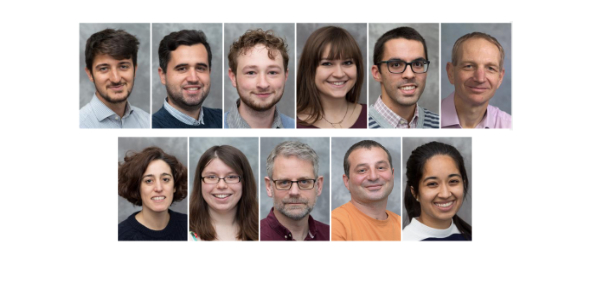Medical
Congratulations to Dr Meelan Thondoo, a senior research associate with the Unit and GDAR, who was awarded a prestigious fellowship at the Australian National University. The Planetary Health Equity Future […]
COVID-19 related restrictions resulted in substantial reductions in air pollution in low- and middle- income countries (LMIC), offering a ‘real world’ example of how concerted policy efforts could make a […]
Lung Cancer Promotion by Air Pollution: Towards Molecular Cancer Prevention Professor Charlie Swanton Where: William Harvey Lecture Theatre, School of Clinical Medicine. When: 11 October, 17:30 Charlie Swanton (UCL and the Crick) will be the Clinical School’s Distinguished Lecturer this year. The lecture will be at 17.30 on the 11 October. Charlie has made major contributions…
In this article originally published in The Conversation, GDAR scientists Dr Gabriel Okello, and Dr Meelan Thondoo discuss strategies that individuals, communities and policy makers can adopt to reduce the threat posed by air pollution in African cities. Rapid urbanisation in Africa is worsening air pollution levels. There are economic as well as health consequences….
Researchers – led by Dr Haneen Khreis at the MRC Epidemiology Unit at the University of Cambridge – have created an interactive systematic evidence map of urban policy interventions to reduce traffic-related emissions and air pollution. Researchers, practitioners and policymakers can use this resource to discover more about the effectiveness of over 1000 policy scenarios,…
Researchers – led by Dr Haneen Khreis at the MRC Epidemiology Unit at the University of Cambridge – have created an interactive systematic evidence map of urban policy interventions to reduce traffic-related emissions and air pollution. Researchers, practitioners and policymakers can use this resource to discover more about the effectiveness of over 1000 policy scenarios,…
The University of Cambridge School of Clinical Medicine is joining many other healthcare organisations (Health Declares) in declaring that the global climate and ecological emergency is a major crisis for health and healthcare. We agree with recent statements from the WHO and in The Lancet that climate change is an urgent global health threat. Extreme…

Michele and Alannah will edit by 13 August The Unit is committed to developing more environmentally friendly and economical ways of working. “Green Team” meetings are held every month with representation from across the Unit to develop policy. Please contact Michele Frison if you would like to get involved. This newly formed group is…
Work by year 6 student Rory Braggins modelling the financial and environmental impacts of switching to more environmentally sustainable inhalers has been just been published in BMJ Open. Working with Alex Wilkinson, (British Thoracic Society) and James Smith, (Public Health and Primary Care), Rory’s work demonstrated that large scale switching to dry powder inhalers could be done…
Metered-dose inhalers contain liquefied, compressed gases that act as a propellant to atomise the drug being delivered and to pump it out to the user. Originally chlorofluorocarbons (CFCs), were used as the propellant but these potent greenhouse gases and ozone-depleting substances are now banned. Instead they have been replaced by hydrofluoroalkane (HFA) propellants. While HFAs…
